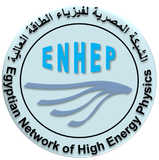Egyptian Network of High Energy Physics
(ENHEP is a sub-network from the Network of Nuclear Sciences (NNS) coordinated by Prof. Tarek Hussien)
On March 2010, the Compact Muon Solenoid (CMS) experiment collaboration board approved that Egypt, represented by the Egyptian Network of High Energy Physics (ENHEP), becomes a full member of the CMS collaboration. CMS is one of the two biggest general proposed experiments in the Large Hadron Collider (LHC) at the European Center for Nuclear Researches (CERN). The ENHEP was established in September 2008 under the auspices of the Minister of Higher Education & Scientific Research, and the president of the Academy of Scientific Research and Technology (ASRT). It acts as a nucleus for the scientific cooperation between Egyptian experts in the areas of high energy physics and CERN in the LHC project. Prof. Shabaan Khalil was the founding team leader of the ENHEP from 2009 to 2012. Prof. Amr Radi was the second ENHEP team leader from 2012 to 2015, followed by Dr. Amr Mohamed from 2015 to 2017. Prof. Khalil is the current team leader, and Dr. Sherif El Gammal and Dr. Hassan Abdalla are the deputy team leaders.
The ENHEP aims at linking the Egyptian high energy physicists together with the CMS experiment at CERN. It also aims at establishing experimental expertise for the LHC accelerator spare parts and high standard electronic equipment, as well as developing simulation techniques that have environmental and industrial impact. Moreover, taking a leading part in the expected revolution in particle physics, and promoting scientific collaboration between researchers and Egyptian academic institutions are two of the main objectives of the ENHEP, in addition to training young scientists in experimental and theoretical particle physics and data analysis.
